Eight weeks that transformed politics
Game Changer by Steve Howell
Review by Alex Davidson
Game Changer is an insider’s account of the eight weeks from Theresa May’s announcement of a General Election through to polling day, which as the sub-title of the book states, “Eight Weeks That Transformed British Politics”.
When Mrs May called the snap election the Tories were more than twenty points ahead of Labour in the polls and the question being put in the mainstream media was “how big would her landslide be?”
In a dramatic election Jeremy Corbyn and Labour’s campaign transformed British politics. Labour won its best vote for twenty years and the largest increase in its vote share since 1945. Far from winning a landslide, the Tories were left without a majority.
Steve Howell was at the centre of Corbyn’s election machine. A member of the Labour leader’s strategy group he was involved in all the key campaign decisions. From the outset he believed that Corbyn’s campaigning skills, enthusiastic army of supporters and inspirational message could produce a surge in support.
Understandably, the author deals with the political rift in the Labour Party but doesn’t dwell on it. He joined Corbyn’s office just after the Copeland by-election when Labour lost the seat. This had triggered another round of rumours and speculation about another challenge to Corbyn’s leadership. He relates how the political rift had produced a staffing structure that was “almost unfathomable” There are two parts to the national Labour machine, the staff working for Corbyn in Parliament (the Leader of the Opposition Office, known by the acronym LOTO) and those based at the Party’s headquarters (referred to as “Southside”).
Following Corbyn’s victory in the second leadership contest some sort of parity had been established between the two parts of the organisation. This had given LOTO more say in the day-to-day running of the party organisation. However, as Howell reports “relations were not easy to say the least.”
The book details the campaign, its highs and lows, and shows that Labour’s message and campaign enthused thousands of people.
Key moments in the election campaign are recounted, analysed and given a ‘behind-the-scenes’ insight. These include the Labour Party’s manifesto and its leak; the Tories’ manifesto and its “dementia tax”; the Manchester and London terrorist attacks.
LABOUR’S LEAKED MANIFESTO
The Labour Party manifesto was the most radical in living memory and included promises to nationalise the railways, water and energy; scrap student tuition fees; invest more in the NHS, housing and schools; and stop foreign wars of aggression.
Before the manifesto had been finally agreed or officially launched it was leaked to the Daily Telegraph and Daily Mail, both of which ran with similar headlines: “Corbyn’s manifesto to take Britain back to the 1970s” (Daily Telegraph); “Labour’s manifesto to drag us back to the 1970’s” (Daily Mail).
The leak gave the manifesto two bites of the cherry and meant that more people would be aware of its key messages. These key messages resonated with millions of people. Commenting on this Steve Howell writes, “In attacking our plans, the Tory media was deluding itself about public opinion and doing us a favour. Their scaremongering about nationalisation, far from making us less popular, helped to achieve the opposite by connecting Jeremy with policies a majority of the public supported.”
In terms of the leak, he comments that “If my theory is correct that the leak is more likely to have come from a Tory-supporting source than a Labour one, it failed spectacularly. The idea that the manifesto would be our Achilles heel was hopelessly wrong. Their tirade gave our policies more publicity than we could have anticipated in our wildest dreams.”
Printed copies of the manifesto sold out within days. Online more than 2.4 million people visited Labour’s website to read it.
SOCIAL MEDIA
From the start of the election campaign Corbyn had been gaining about 50,000 new Twitter followers every week taking him over the million mark by the time of the manifesto launch.
The manifesto leak sparked a surge in voter registrations, from a daily rate of 50-60,000 it went to over 100,000 following the manifesto leak. Of those registering, a third were 24 years of age or younger and another third were 25 to 34 years of age.
Howell recounts one of the highlights of the social media campaign when Jeremy Corbyn “gate-crashed” Theresa May’s appearance on ITV’s Facebook Live. Jeremy’s post asked May why would she not debate with him on television. The question and her lame reply was a massive hit on Facebook and Twitter. Jeremy’s video about it on Facebook was viewed 3.76 million times. His tweet racked up 2.69 million impressions.
TORY MANIFESTO BOMBSHELL
Two days after the Labour Party manifesto launch the Tories launched their manifesto on 18th May. It was extremely thin but it contained a bombshell in what became known as the “dementia tax”.
A proposal to include the value of someone’s house, rather than just their savings, when calculating whether or not they would have to pay for their own social care was greeted with an outcry.
In the afternoon following the Tory manifesto launch Labour’s team worked on their response and came up with the strapline, “Tory triple whammy for pensioners.” Steve Howell worked on the key messages and graphics for the Labour press conference the following day and what would work on social media. What emerged was an image with the strapline above three giant boxing gloves saying on each in turn: “No triple lock”, “No winter fuel allowance”, and “Pay for care with your home.”
He used some of his digital budget to buy “dementia tax” on Google AdWords. An advertiser can bid for a term so that their advert appears next to the Google search results when people look for that subject. People seeking information on the Tory proposal would see at the top of the page a link that would take them to a Question and Answer site exposing how the “dementia tax” would hit people.
The Tories played up “inter-generational inequality” to justify the “dementia tax”. A section of their manifesto, “A Restored Contract Between the Generations” stated that, it would “require great generosity from one group to another – of younger working people to pay for the dignified old age of retired people, and of older people balancing what they receive with the needs of the younger generation.”
This cynical approach was a classic case of “divide and rule”. The real issue was the huge and growing disparity between a very small, hugely wealthy, minority and the vast majority of the people of all ages. The combined wealth of the 1,000 people on the 2017 Sunday Times Rich List was £658 billion, a 14% increase on the previous year.
In preparation for a speech by Jeremy Corbyn, Howell sent an email to Seaumas Milne and Andrew Murray, Corbyn’s speech writers suggesting the speech should be on the theme of “uniting generations”. He suggested that it should spell out that the Tories have made it impossible for young people to buy a home” and are now “making their parents use their home to pay for their care”.
Two days after the launch of the Tory manifesto Jeremy Corbyn speaking at a rally in Birmingham said, “The Tory manifesto must be the most divisive for many elections. They are now pitching young against old. Their manifesto is typical of what a very well known person once called a nasty party, as they attempt to set one generation against another. For pensioners they offer a triple whammy of misery: Ending the ‘triple lock which protects pensioner incomes, means testing the Winter Fuel Allowance and slapping a ‘compassion tax’ on those who need social care by making them pay for it using their homes. Some claim that cutting support for the elderly is necessary to give more help to the young. But young people are being offered no hope by the Tories either – loaded with tuition fee debts, with next to no chance of a home of their own or a stable, secure job. We stand for unity across all ages and all regions in our country.
It is simply wrong to claim that young people can only be given a fair deal at the expense of the old, or vice-versa…We say that if we all stand together we can build a fairer Britain…
I find it deeply offensive that we should get into this discussion and debate. Older people who’ve made such a fantastic contribution to our society, and in retirement continue to make that contribution in voluntary activities in inspiring people, in supporting young people. And young people who seek the advice and solace of older people. It’s not a war between generations, it’s a unity of generations to create a better society for all”
MANCHESTER BOMBING
On 22nd May there was the terrorist bombing of the Manchester Arena as thousands of people, mainly teenagers, were leaving an Ariana Grande concert. Political campaigning was suspended.
When campaigning resumed, Corbyn gave a speech about the atrocity in which he said: “Many experts, including professionals in our intelligence and security services, have pointed to the connection between wars our government has supported or fought in other countries and terrorism here at home…an informed understanding of the causes of terrorism is an essential part of an effective response that will protect the security of our people that fights rather than fuels terrorism. We must be brave enough to admit ‘the war on terror’ is simply not working.”
The Tories and much of the mainstream media attacked the speech, with the Sun calling it “incendiary” and that it “will spark outrage”. The defence secretary, Michael Fallon, dubbed the speech “ill-judged” and proof that Corbyn was “soft on terrorism”.
However, a YouGov poll found that a majority (53%) agreed that wars the UK has supported or fought are responsible, at least in part, for terror attacks on Britain. This was more than twice the proportion who think they are not responsible for terror attacks (24%).[i]
LONDON TERRORIST ATTACK
At 10.04 pm on 3 June, the final Saturday before polling day, the attack on London Bridge began when three terrorists drove a van into pedestrians on London Bridge and went on a stabbing rampage in the nearby restaurants and pubs. Seven people were killed and many more were injured. The three perpetrators were shot dead by police.
The BBC used a clip from an old Laura Kuenssberg interview with Jeremy Corbyn after the terrorist attacks at the Stade de France and the Bataclan theatre in Paris. The clip had been used in a News at Six report nearly two years earlier which the BBC Trust had ruled as inaccurate and a breach of impartiality because it gave the false impression that Corbyn was opposed to the use of lethal force in such circumstances.
The clip’s accompanying text said Jeremy Corbyn was “not happy” with a shoot-to-kill policy “in the event of” a terror attack on Britain’s streets. The text was at odds with the BBC Trust ruling and Corbyn’s position that he supported the use of whatever force was necessary to save lives. The page became the top trending item on the BBC website and was shared widely across social media by Tory supporters. Later that day the Sun’s website ran the story with the headline, “ Jez gun row – Video of Corbyn saying he opposes shoot-to-kill policy rises to the top of BBC website in wake of London attack.”
Objections were raised with the BBC, whose reply said that the complaint upheld by the Trust was “not against the online story but against the broadcast piece” and that they were “happy that we have broken no election rules.”
Jeremy Corbyn in a speech in Carlisle made his position clear: “I will take whatever action is necessary and effective to protect the security of our people and our country. That includes full authority for the police to use whatever force is necessary to protect and save life as they did last night…”
He went on to respond to Theresa May’s comments following the attack when she had proposed “stamping out extremism in the public sector” and that there were difficult decisions to be made about dealing with extremism. He said, “And, yes, we do need to have some difficult conversations starting with Saudi Arabia and other Gulf states that have funded and fuelled extremist ideology…We have to get serious about cutting off the funding to these terror networks, including ISIS here and in the Middle East.”
Howell reports that the Labour campaign bought ‘shoot-to-kill’ on Google AdWords so that people using that search term would be offered a link to Corbyn’s Carlisle speech.
GAME CHANGER
The election result saw the Tories lose their overall majority rather than win a landslide. Labour’s share of the vote saw its biggest advance from one election to another since 1945. In 2015 Labour’s share of the vote was 30.4%. In 2017 its share of the vote rose to 40%.
Peter Mandelson in an interview on the BBC’s Radio 4 ‘World at One’ the day after the election, said, “I was wrong (about Jeremy Corbyn). I am very surprised, an earthquake has happened in British politics and I did not foresee it.”
After acknowledging he had been wrong, and now adjusting to the new situation he said that “he remained unconvinced by Corbyn’s ability to win a majority down the line.” This position was taken up in other interviews later that day by other Labour right-wingers, including Lord Blunkett, who called on Corbyn to “heal the rift” with the Parliamentary Labour Party (PLP) by allowing it to elect the shadow cabinet. Chuka Umunna, who had previously ruled himself out of a shadow cabinet ministerial role under Corbyn said he was now prepared to take one.
Jeremy Corbyn did not bow to that particular pressure and re-appointed to his shadow cabinet those who had been loyal and who had helped run an extremely positive and successful campaign.
Howell, in summing up the campaign, refers to the British Election Study, which tracks the opinions of 30,000 respondents before, during and after an election , which concluded that the campaigns mattered more than “any British election in recent memory” and that Labour had been successful in winning over a majority of the switchers (people who changed from one party to another during the eight weeks) as well as a majority of those undecided at the outset.
Whilst acknowledging that the Labour campaign was aided by the “wooden” performance of Theresa May and a disastrous Tory manifesto, he lists five factors contributing to Labour’s success:
- Jeremy Corbyn is a great campaigner and “message carrier”. His authenticity, honesty, compassion and beliefs resonated with people. The Tories singled out Corbyn for attack on the basis that they thought he was a liability for Labour.
- The huge increase in Labour Party membership since Corbyn became leader, taking it to over 500,000 members, gave the campaign a huge number of ‘boots on the ground’, far more than the Tories. Hundreds of thousands organising online and on the ground outplayed the Tories big money machine.
- The Voter registration campaign led by Labour in which nearly 3 million people registered over the course of the campaign. There was a surge in applications after the Labour Party manifesto leak and on deadline day (13 May) there were 622, 389 new registrations.
- Social media. Labour overwhelmingly won this aspect of the campaign as the Facebook and Twitter figures show.
- The strategic decision, contrary to conventional wisdom, to tackle tough issues pro-actively. This meant taking on perceived weaknesses such as Brexit, Jeremy Corbyn’s leadership and national security, believing that these could actually be strengths if re-framed rather than reacting defensively to the Tory mainstream media’s narrative.
This book, written by an insider in Labour’s election campaign, gives a vivid account of an outstanding campaign, which over-turned a twenty point deficit in the polls against all the odds, secured Jeremy Corbyn’s position as leader, weakened May’s position and prepared the way for a Labour victory at the next election.
[i] Matthew Smith, ‘Jeremy Corbyn is on the right side of public opinion on foreign policy’, YouGov, 30 May 2017.
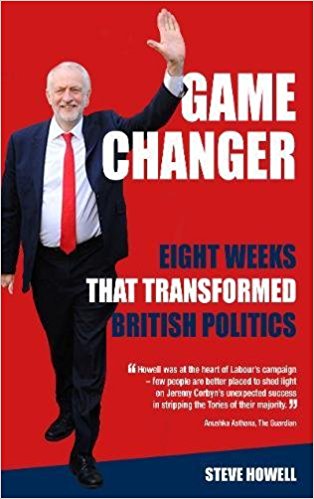
"We stand for unity across all ages and all regions in our country.
It is simply wrong to claim that young people can only be given a fair deal at the expense of the old, or vice-versa...
It's not a war between generations, it's a unity of generations to create a better society for all."
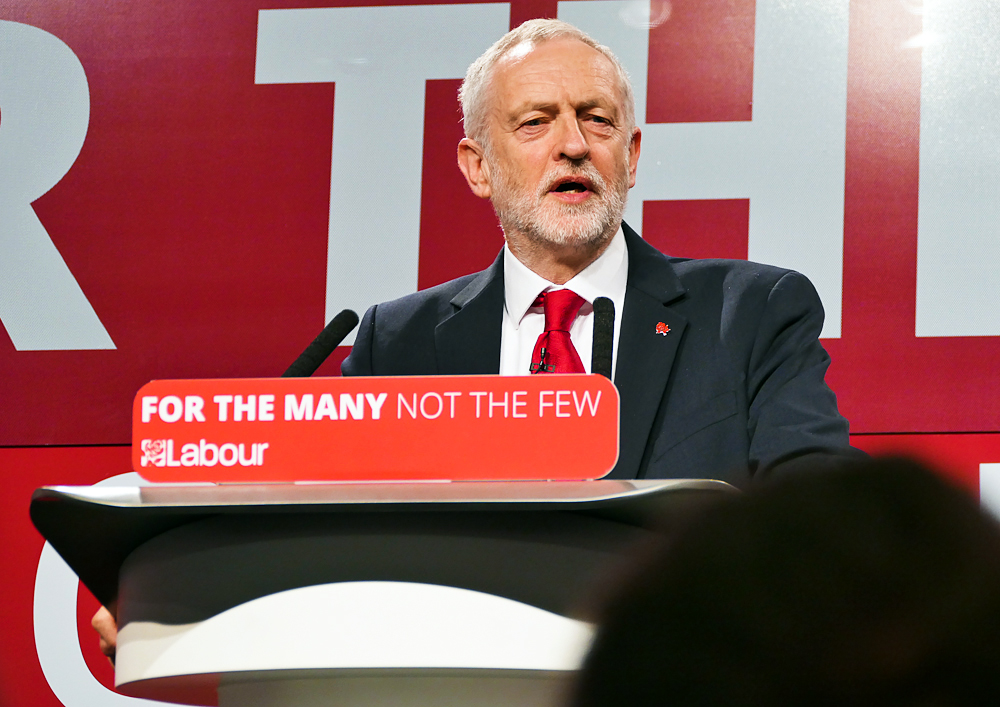
Labour leader Jeremy Corbyn launching the party's general election campaign on 9 May 2017 in Manchester.
"the huge increase in Labour Party membership since Corbyn became leader, taking it to over 500,000 members, gave the campaign a huge number of 'boots on the ground', far more than the Tories."

"Jeremy Corbyn is a great campaigner and 'message carrier'. His authenticity, honesty, compassion and beliefs resonated with people.
The Tories singled out Corbyn for attack on the basis that they thought he was a liability for Labour."
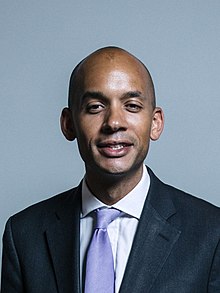
Chuka Umuna
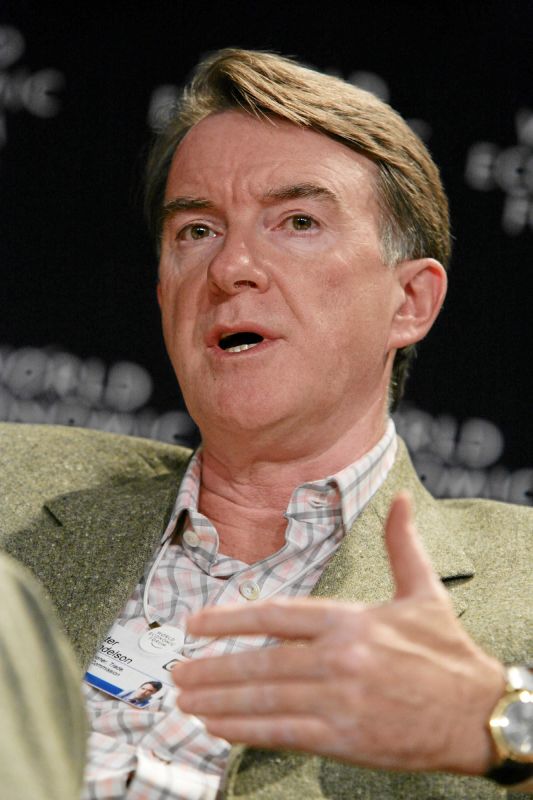
Lord Mandelson
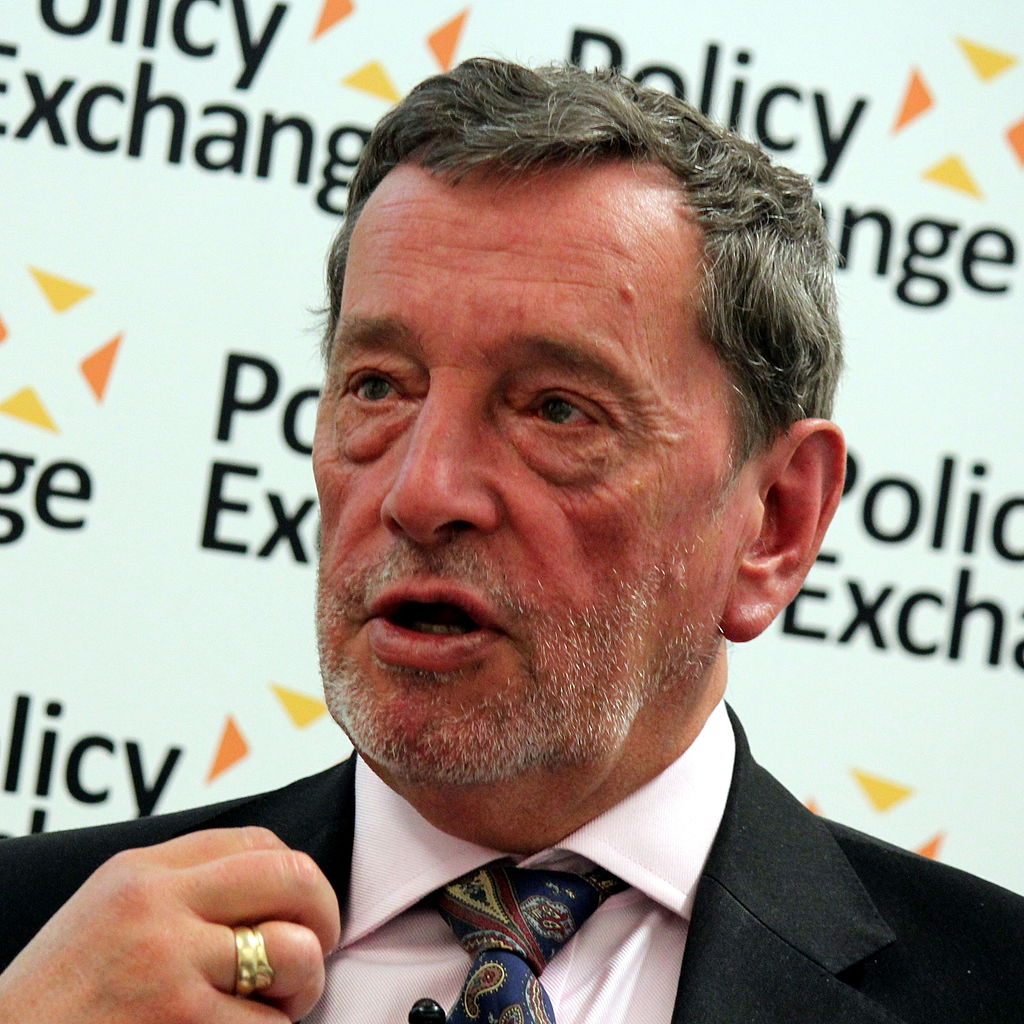
Lord Blunket






